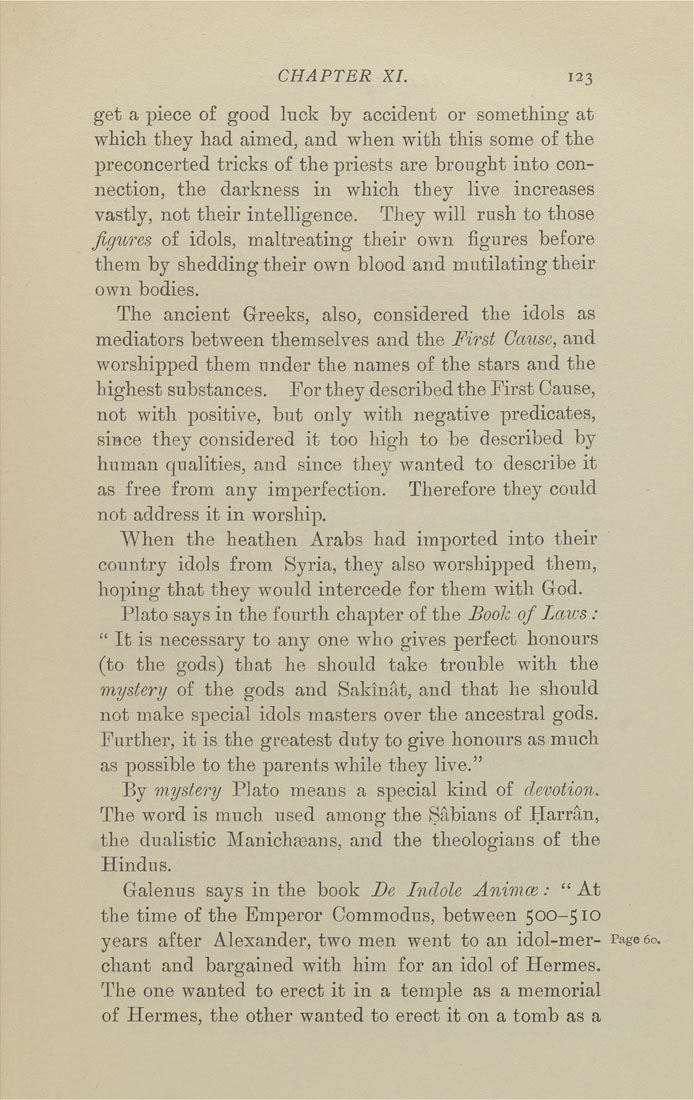Bīrūnī, Muḥammad ibn Aḥmad, Alberuni's India (v. 1)
(London : Kegan Paul, Trench, Trübner & Co., 1910.)
|
||
|
|
|
|
| Page 123 |

CHAPTER XI. 123 get a piece of good luck by accident or something at which they had aimed, and when with this some of the preconcerted tricks of the priests are brought into con¬ nection, the darkness in which they live increases vastly, not their intelligence. They will rush to those figures of idols, maltreating their own figures before them by shedding their own blood and mutilating their own bodies. The ancient Greeks, also, considered the idols as mediators between themselves and the First Cause, and worshipped them under the names of the stars and the highest substances. For they described the First Cause, not with positive, but only with negative predicates, since they considered it too high to be described by human qualities, and since they wanted to describe it as free from any imperfection. Therefore they could not address it in worship. When the heathen Arabs had imported into their country idols from Syria, they also worshipped them, hoping that they would intercede for them with God. Plato says in the fourth chapter of the Book of Laws: " It is necessary to any one who gives perfect honours (to the gods) that he should take trouble with the mystery of the gods and Sakinat, and that he should not make special idols masters over the ancestral gods. Further, it is the greatest duty to give honours as much as possible to the parents while they live." By mystery Plato means a special kind of devotion. The word is much used among the Sabians of Harran, the dualistic Manichaaans, and the theologians of the Hindus. Galenus says in the book De Indole Anirnce: " At the time of the Emperor Commodus, between 500-510 years after Alexander, two men went to an idol-mer- Page 6c chant and bargained with him for an idol of Hermes. T'he one wanted to erect it in a temple as a memorial of Hermes, the other wanted to erect it on a tomb as a |
| Page 123 |







